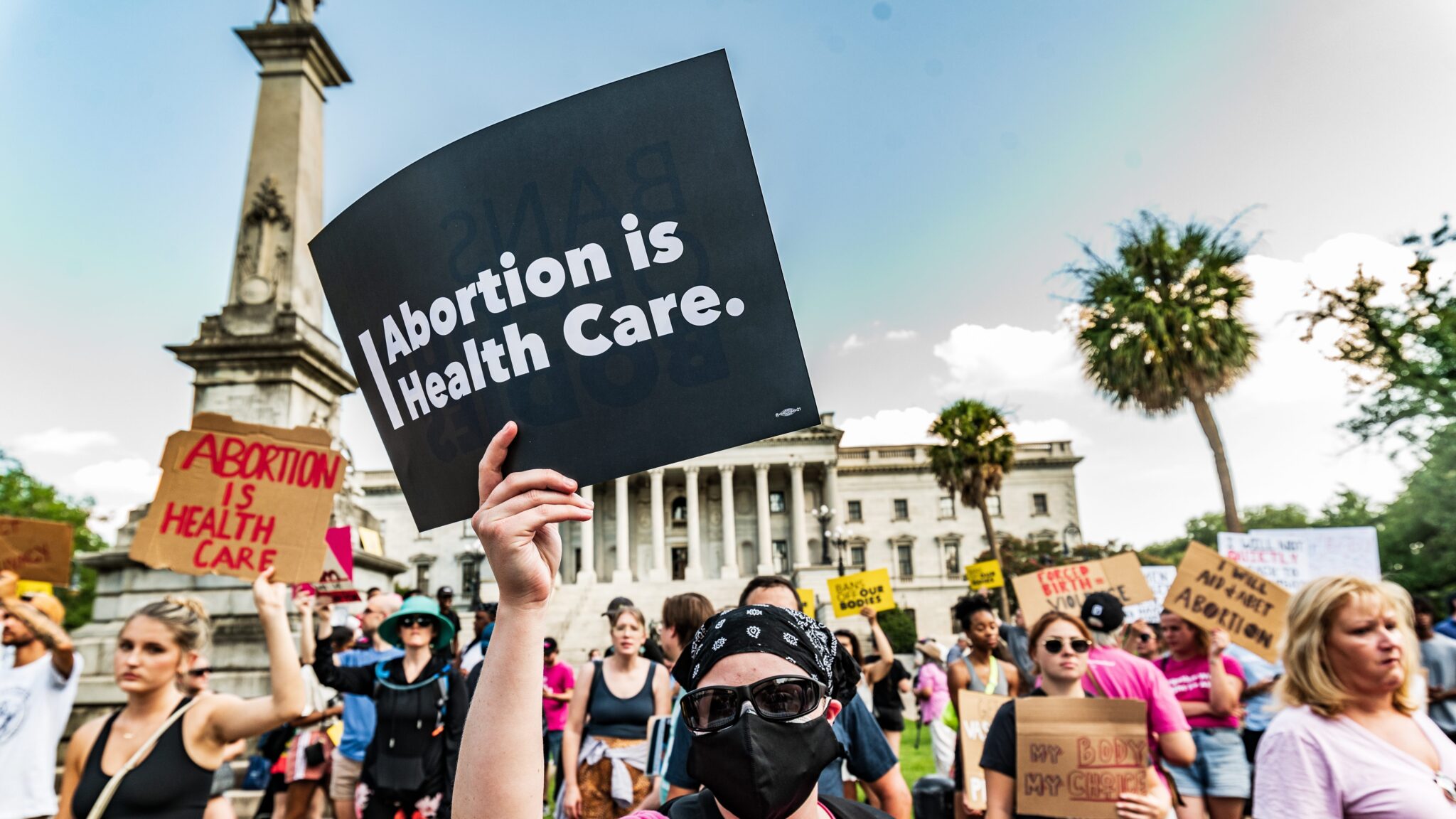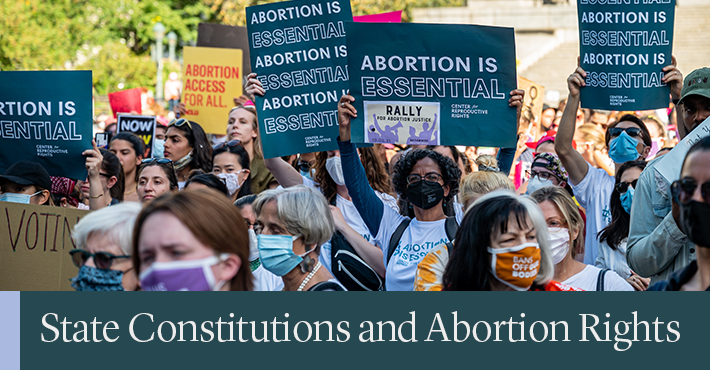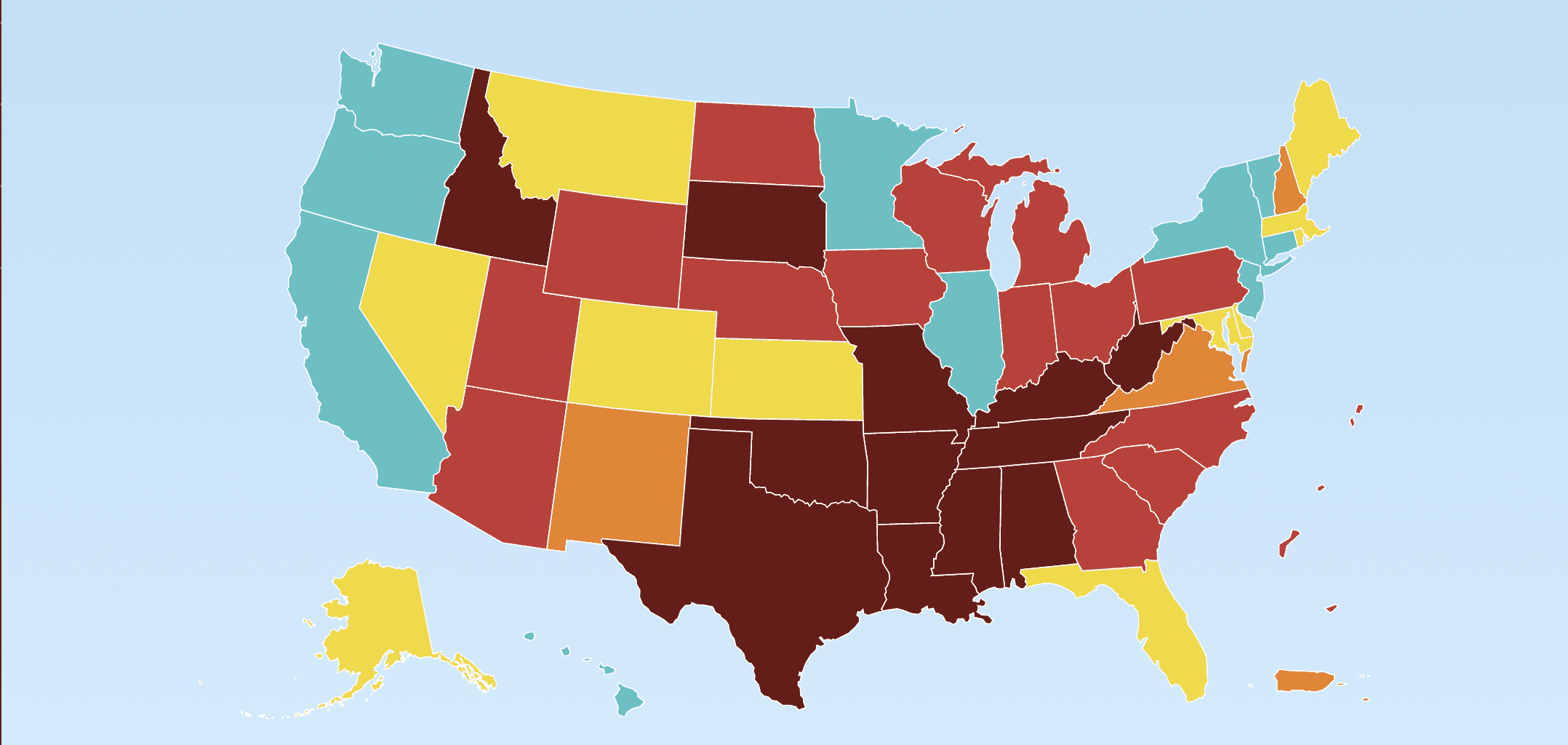Center Argues to Protect Abortion Rights Under State Constitutions
Arguments scheduled in South Carolina and Georgia cases challenging abortion bans.

Now that the U.S. Supreme Court has taken away the constitutional right to abortion, state constitutions matter more than ever.
This month, state constitutional protections will be the basis of arguments by the Center for Reproductive Rights and its partners as they argue in South Carolina and Georgia against state laws banning abortion after six weeks of pregnancy—and for the protection of abortion rights under each state’s constitution.
South Carolina’s constitution guarantees the rights to privacy and equal protection under the law; Georgia’s constitution guarantees the right to privacy, liberty, and equal protection. As the Center and its partners argue, abortion rights are protected as fundamental rights under these clauses in the state constitutions.
Case update: Georgia Ban Blocked
On November 15, Georgia’s six-week ban was temporarily blocked, allowing most abortion care to resume in the state.
“The U.S. Supreme Court has taken away federal protections for abortion rights—but states have unique constitutions and court systems, and they can guarantee greater protection for reproductive autonomy,” said Genevieve Scott, senior counsel at the Center. “Several states have already recognized protections for abortion rights, and South Carolina and Georgia should also do so, considering the robust privacy and equal protection clauses in their constitutions.”
October 19: Hearing at the South Carolina Supreme Court
Georgia Trial Held October 24-25
In testimony before the Superior Court of Fulton County, plaintiffs argued for the court to block the ban .
On Wednesday, October 19, oral arguments will be presented in South Carolina’s Supreme Court against the state’s abortion ban, which was preliminarily blocked by the Court on August 17. Abortion remains legal in South Carolina while the case proceeds.
Watch the video livestream of the South Carolina argument here.
In June, a federal district court allowed the ban to take effect shortly after the U.S. Supreme Court struck down Roe v. Wade. The state court lawsuit, filed on July 13, argues that the ban violates South Carolinians’ constitutional rights to privacy and equal protection by banning abortion, providing inadequate protections for patients’ health, and conditioning sexual assault survivors’ access to abortion on the disclosure of their personal information to law enforcement.
South Carolina is currently a critical access point for those seeking abortion care across the South and Southeast, since many states are enforcing total or near-total abortion bans.
October 24-25: Georgia Case to Be Argued in the Superior Court of Fulton County
The trial challenging Georgia’s six-week ban will take place October 24 and 25 at the Superior Court of Fulton County, with arguments livestreaming at 9 am. A federal appeals court allowed the law, H.B. 481, to take effect on July 20, weeks after Roe v. Wade was overturned,and the Superior Court of Fulton County refused to preliminarily block it on August 15.
The lawsuit challenging the ban, filed on July 26, argues that the ban violates the Georgia constitution’s protections of liberty, privacy, and equal protection. In addition, it argues that the ban is unconstitutional since it violated Roe v. Wade when enacted in 2019, making it void under the Georgia constitution, regardless of the subsequent change to federal protections.
Watch the video livestream of the Georgia argument here.
State Constitutions Offer Strong Legal Grounds for Protecting Abortion Rights
Many state constitutions and courts offer stronger and expanded legal grounds for protecting abortion rights—and can also shield access to abortion in highly restrictive parts of the country.
For decades, the Center has brought cases in state courts to build protections for reproductive rights at the state level, independent of federal law. In 10 states, high courts have recognized that their state constitutions protect abortion rights independently from, and often more extensively than, the U.S. Constitution’s prior protections under Roe and have struck down restrictions that were upheld by the U.S. Supreme Court.
See the Center’s State Constitutions and Abortion Rights page here.
Where is abortion now illegal in the U.S.?
After Roe Fell: Abortion Laws by State
Find out more about state abortion laws and policies with this interactive map.
Since the Supreme Court’s decision overturning Roe v. Wade, lawmakers in several states have acted to ban or severely restrict abortion—and abortion is currently illegal in 12 states. More states are expected to restrict or ban abortion when state legislatures convene in January.
Large swaths of the South and Midwest are now abortion deserts—where people cannot access abortion care in their communities and must travel long distances to access services or carry pregnancies against their will.
Lawsuits by the Center and its partners like those in South Carolina and Georgia have blocked some state abortion bans, and litigation continues.


